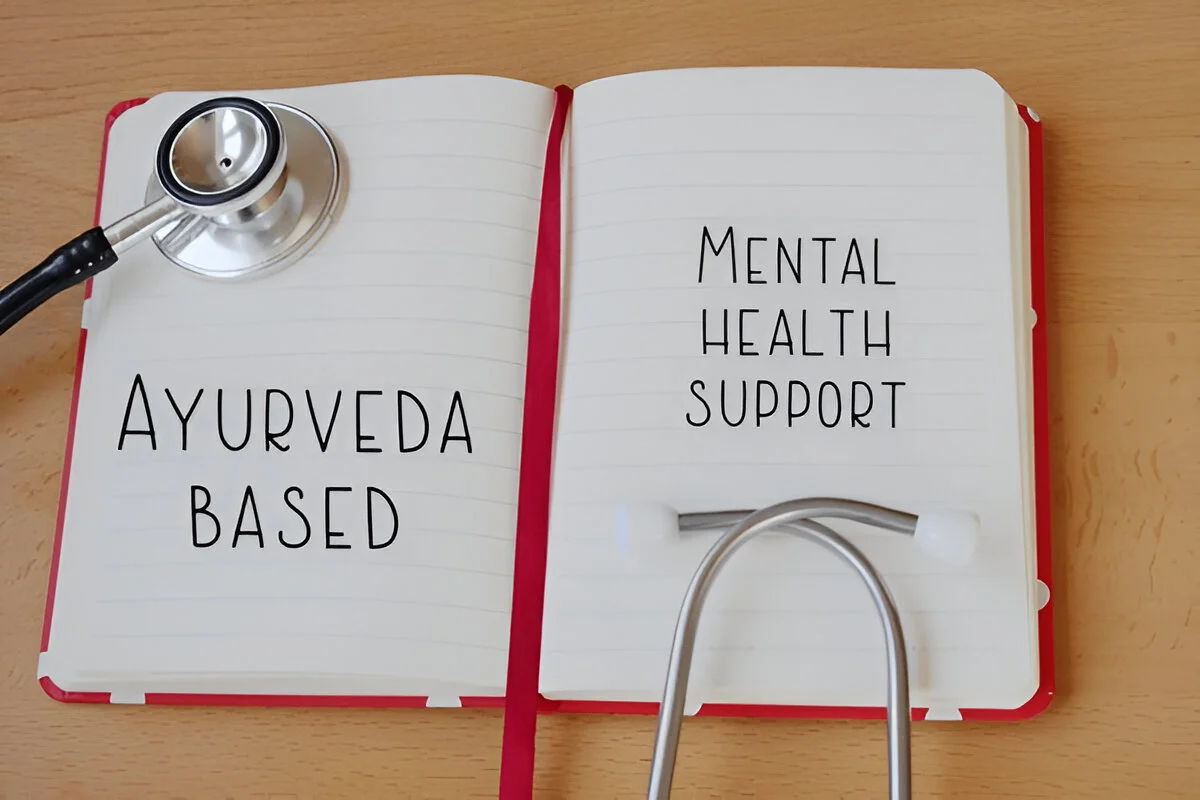-
129, Block-A Bangur Avenue, Mousumi Appartment, Kolkata 700055
129, Block-A Bangur Avenue, Mousumi Appartment, Kolkata 700055

Mental wellness lessons Ayurveda offers today can help balance mind and emotions. With guidance from a reputed counselor, discover timeless principles for inner peace and resilience in modern life.
In an age where stress levels are high, attention spans are shrinking, and emotional health is often overlooked, ancient wisdom can sometimes offer the calm we need. Ayurveda, the 5,000-year-old system of natural healing from India, has always emphasized the deep connection between mind, body, and spirit.
While many think of Ayurveda in terms of herbal remedies and dietary guidelines, it also carries profound insights into mental well-being—insights that are surprisingly relevant today. These mental wellness lessons Ayurveda offers today blend lifestyle choices, mindfulness practices, and emotional regulation into a holistic approach for a healthier mind.

Ayurveda is based on the belief that each person has a unique constitution, or Prakriti, governed by three primary energies (doshas): Vata, Pitta, and Kapha. Mental wellness, in Ayurvedic philosophy, is about maintaining balance in these energies through diet, lifestyle, meditation, and self-awareness.
The focus is not just on treating symptoms of stress or anxiety but on understanding their root causes—be it environmental, emotional, or physical.
Modern lifestyles often promote habits that pull us away from mental harmony: erratic sleep, over-reliance on digital devices, processed foods, and constant multitasking. Ayurveda offers:
It’s not about replacing modern psychological care but enriching it with ancient, time-tested wisdom.
Ayurveda teaches that mental wellness cannot exist without physical balance. Poor digestion, disrupted sleep, and lack of exercise can lead to emotional instability.
A consistent routine brings predictability, which can calm the nervous system and reduce anxiety. This includes regular sleep and wake times, mealtimes, and meditation.
Ayurveda encourages fresh, seasonal, and sattvic (pure, light, and nourishing) foods. Overly processed or heavy meals can cloud mental clarity.
Pranayama (breathing exercises) and meditation are essential tools for calming an overactive mind. They help regulate emotional responses and improve concentration.
Each dosha imbalance affects the mind differently:

While Ayurveda provides a holistic framework, modern psychology brings scientifically validated therapies and techniques. Together, they can offer:
For example, a counselor might integrate Ayurvedic mindfulness practices into cognitive behavioral therapy sessions, giving clients both practical coping skills and deeper lifestyle changes.
Today’s challenges—like digital burnout, workplace stress, and social isolation—require tools that address both the symptoms and the lifestyle patterns that cause them. Ayurvedic practices are adaptable:
Emotional resilience is not about avoiding difficulties but responding to them with balance and clarity. Ayurveda helps cultivate:
Applying Ayurvedic principles to mental health requires understanding both the philosophy and the individual’s unique constitution. Counselors who are well-versed in integrative approaches—such as those recognized as the Best psychological counselor in Kolkata—can guide individuals in blending Ayurveda with modern therapeutic techniques.
Minds Eye, for example, is known for incorporating evidence-based counseling with traditional wellness philosophies, giving clients a comprehensive path to mental well-being without losing sight of either science or tradition.

Q1. Can Ayurveda replace modern mental health treatment?
No. Ayurveda can complement modern therapy but should not replace professional psychological or psychiatric care when needed.
Q2. How quickly do Ayurvedic mental wellness practices work?
Some practices, like mindful breathing, can bring immediate calm, while others—like dietary changes—may take weeks to show results.
Q3. Is Ayurveda safe for everyone?
Yes, but herbal supplements and treatments should be guided by qualified practitioners to avoid interactions with medications.
Q4. Do Ayurvedic practices require major lifestyle changes?
Not necessarily. Even small, consistent changes can bring noticeable improvements in mental wellness.
Q5. Are these practices suitable for children and older adults?
Yes, but routines and recommendations should be tailored to age, constitution, and health status.
Ayurveda’s wisdom on mental wellness is as relevant today as it was thousands of years ago. By emphasizing balance, mindfulness, and preventive care, it offers practical tools to face modern mental health challenges with clarity and resilience.
When combined with contemporary counseling methods, these ancient practices can create a powerful, well-rounded approach to emotional well-being.
Incorporating the mental wellness lessons Ayurveda offers today into daily life isn’t about following rigid traditions—it’s about embracing timeless principles that align the mind, body, and spirit. And with expert guidance from professionals, individuals can navigate this path with confidence, blending ancient wisdom and modern science for a healthier, more balanced life.